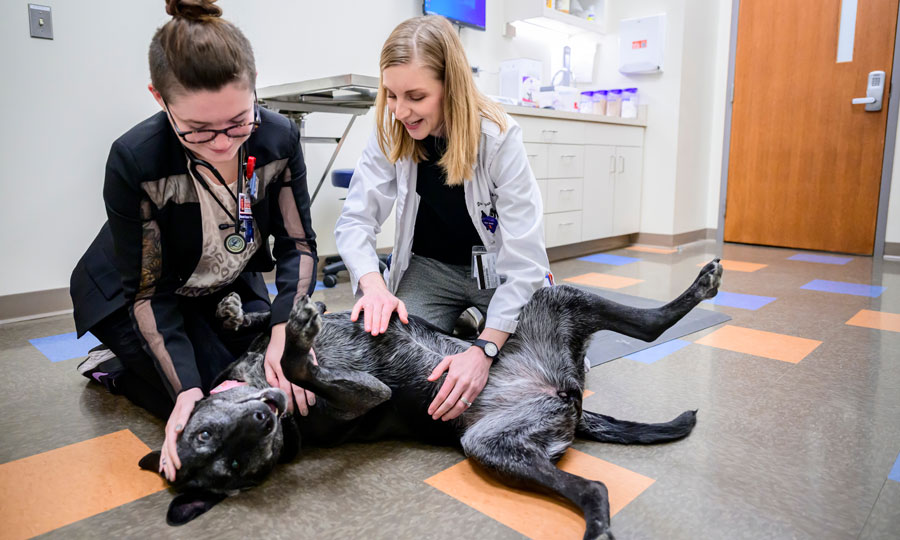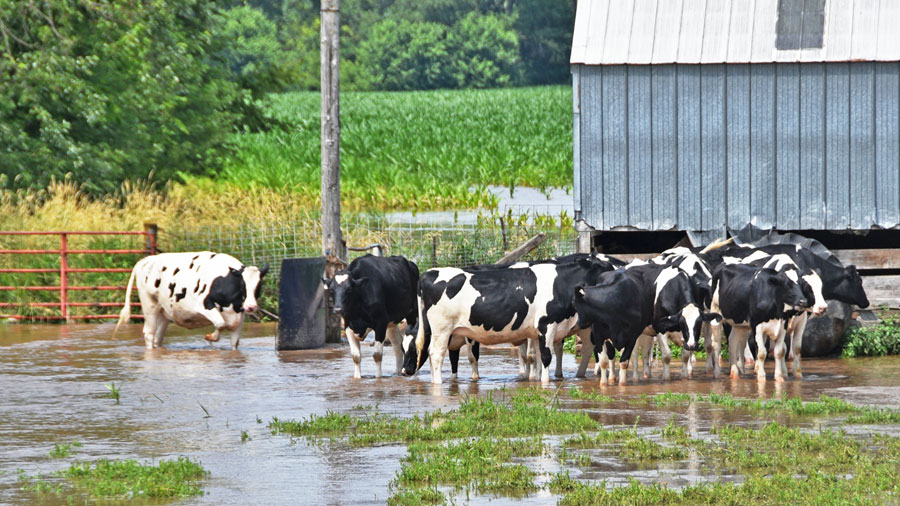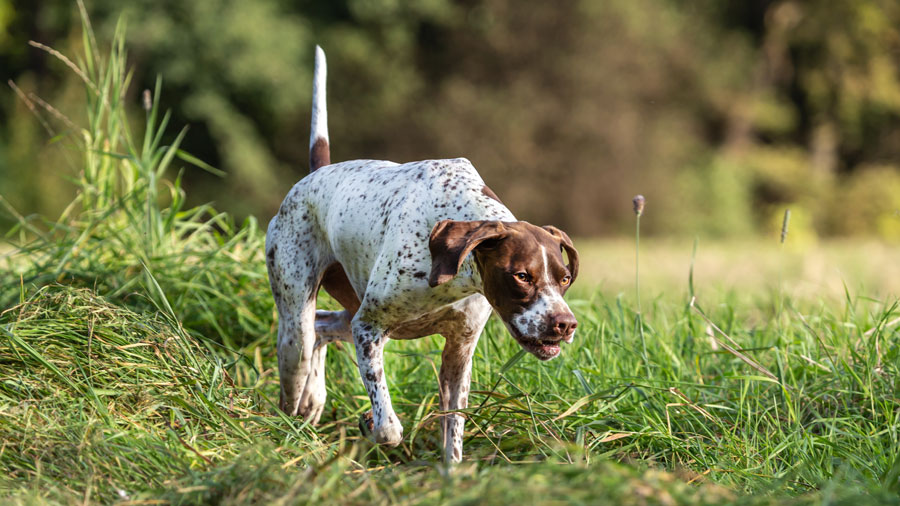No Fireworks or Fatty Foods for Fido
For Americans, the Fourth of July is a day of celebration, fireworks, and finding hundreds of ways to incorporate the American flag into food, outfits, and decorations. For our pets, it’s a random hot day full of strangers and lots of good-smelling food, accompanied by inexplicable loud “kabooms.”
Before addressing the fireworks issue, it is important to highlight many other dangers and hazards that pets face every year on this patriotic holiday. Dr. Gary Brummet, a veterinarian who provides primary care for pets at the University of Illinois Veterinary Teaching Hospital in Urbana, offers some advice to help keep pets safe during Fourth of July festivities.
Keep Pets from Eating Bad Stuff
To begin with, ingesting fireworks can be potentially toxic for pets. “Many fireworks contain potassium nitrate or heavy metals that can cause gastrointestinal upset or neurologic problems,” Dr. Brummet warns. Pets that get too close to fireworks are also at risk of getting burned.
Remember that dogs don’t know the difference between a firework and a toy. If you light a firework and throw it, your dog might assume it’s a game of fetch, so don’t allow your dog in the area with dangerous explosives.
It’s also important to consider that debris from the festivities does not disappear overnight. Be on the lookout when walking your dog during this season to make sure that none of the used fireworks end up in your dog’s mouth.
Dr. Brummet also warns owners against giving pets table food at parties. “Feeding your pet high-fat people food, such as hamburgers and hot dogs, will cause gastrointestinal upset and possibly even acute pancreatitis.” (Pancreatitis occurs when the digestive system is overwhelmed by a lot of fatty food, and it can cause long-term organ damage.)
“Dogs can also get alcohol or marijuana toxicity, with smaller dogs being at a greater risk,” Dr. Brummet says. “No matter how you choose to celebrate the holiday, make sure these substances stay far away from your pets.”
Fireworks Noise: Annoyance or Anxiety?
The most notable part of the Fourth of July is, of course, the fireworks. Whether or not you choose to see the fireworks on the Fourth of July, chances are your family—and pets—will be able to hear these festive explosions from your own home.
Although your first instinct might be to bring your dog with you in order to provide some TLC, most dogs are best off staying home on the Fourth of July, and certainly those that are afraid of loud noises or anxious around large crowds should not be taken to a fireworks celebration.
How do you know when your pet’s noise-related anxiety is severe enough to seek help? According to veterinary behaviorist Dr. Kelly Ballantyne, you should contact your veterinarian if you notice that your dog repeatedly reacts to a loud noise in one or more of the following ways:
- Trembling or shaking
- Hiding
- Following you closely/seeming clingy
- Panting or drooling
- Pacing or appearing restless
- Whining or barking
- Cowering
- Appearing hypervigilant (continuously looking around as if danger is nearby)
- Attempting to escape or chewing on furniture, walls, or crate
Reducing exposure to the noise and lights by closing windows and blinds, turning on the TV or radio, or distracting the dog with bones or puzzle toys may be sufficient to keep your pet calm. However, your veterinarian may also recommend medication to reduce anxiety.
“Trazadone is a commonly used anti-anxiety drug, and Acepromazine is a common tranquilizer,” Dr. Brummet says. “I don’t recommend over-the-counter options because they usually aren’t as effective.”
ID Pets in Case of Escape
July 5 is one of the busiest days of the year for animal shelters. This is because dogs and cats, both indoor and outdoor pets, panic during the loud fireworks and run away in distress.
To make sure this doesn’t happen to your pets, keep them at home in a secure location on July 4. If you must bring your dog with you, make sure he is leashed, has an up-to-date microchip, and is wearing a name tag with contact information.
For more information about how to keep your pet calm during the Fourth of July, talk to your local veterinarian.
By Danielle Engel

![[dog in Fourth of July parade]](https://vetmed.illinois.edu/wp-content/uploads/2021/04/pc-fourth-brummet.jpg)


